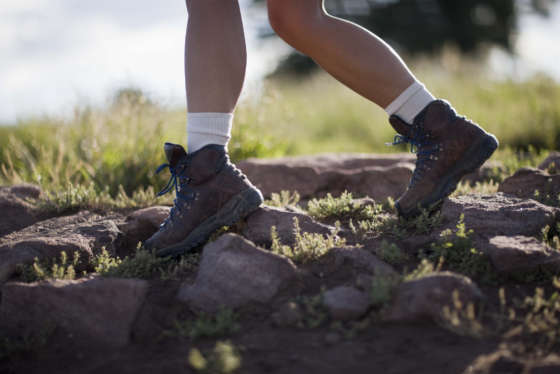WASHINGTON — Every year, about 12 percent of Americans move. And for several years, Melody Warnick was counted in that statistic.
After college, the self-described nomad lived in Maryland, Utah, Iowa, California and Texas, before settling into her current home in southwest Virginia.
“Every time we moved, there would be this period of feeling like, ‘How did I end up here?’ and, ‘I’m not sure that this is the right place for me,’” said Warnick, a journalist and mother of two.
After unloading what she hoped would be her final moving van in the small Blue Ridge mountain town of Blacksburg, Warnick decided to launch a social experiment of sorts. She made it her mission to find out how people become attached to a place.
In her new book, “This is Where You Belong,” Warnick runs through the research of place attachment and offers readers tips on how they can fall in love with where they live.
“When you’re place attached, it means that you don’t want to move any time soon. You’re happy in your community, you recognize that it’s not perfect, but you love what it has to offer, you’re invested in it, you want to have an impact on your town,” she said.
Ready to feel connected to your community? Here are a few ways to do just that:
Hit the pavement
Whether you’re new to town or are feeling a bit detached, Warnick’s advice is the same: start walking.
“It’s a great way to learn your way around town when you’re new because you’re going at a really human, slow pace,” she said.
“At the same time, you start to feel a sense of ownership for your place. You recognize things that are familiar, you might see familiar faces and it can make you feel really quickly like you are interwoven into the fabric of your town.”
Meet the neighbors
Getting to know your neighbors has perks beyond borrowing the occasional cup of sugar when you’re running low. According to a study from the University of Michigan, having a connection with those around you may even reduce your risk for a heart attack.
Warnick cites additional research that shows people who are connected with their neighbors live 6 percent longer than those who are not.
“Having local relationships and a love for the place around you actually improves your longevity,” Warnick said.
Get social outside
Spending time outside in your town’s parks, hiking trails and gardens also comes with health benefits, including reduced levels of stress, anxiety and depression. Warnick says when the opportunity strikes, take advantage of outdoor social functions, such as fall festivals and Fourth of July parades.
“A lot of it is just these little simple things that show a commitment to what’s going on locally,” she said.
Moving? What to look for in a new home
If you’re relocating to a new neighborhood, city or state, Warnick suggests looking for a few key characteristics that will help you connect to your new home.
Scout out a location that prizes and supports local businesses.
“Every community in the United States has an Applebee’s or Olive Garden, but what makes our towns unique and gives them real character is local, independent businesses that you can only find here,” Warnick said.
“So a place where those kinds of stores and restaurants are thriving shows that you have an active community that cares about supporting those places.”
To ensure your new home is a good fit for you, Warnick says to pay attention to three factors that a recent Knight Foundation study found to be the biggest drivers of place attachment. These include social offerings (feeling that your community offers activities that interest you), aesthetics (feeling like your town is attractive) and openness (feeling like your town is friendly and welcoming to new people and provides opportunities for everyone).
“If you can find that trifecta in a place where you’re considering moving, there’s a really good chance that you will end up loving it,” Warnick said.
Helping kids feel at home
Moving kids to a new area with a new school comes with its challenges, but Warnick says at the end of the day, they want the same things adults seek in a new home: solid relationships and a sense of belonging.
“Help your kids meet the neighbors, find friends, sign them up for soccer or summer camp when you’re new in a community, but also treat it like an adventure. Explore all of the doughnut shops in town or all of the parks. Go on bike rides. It can be hard when you’re moving because it’s such a time of upheaval, but prioritizing having positive experiences in the new place will help them adjust more quickly,” Warnick said.








